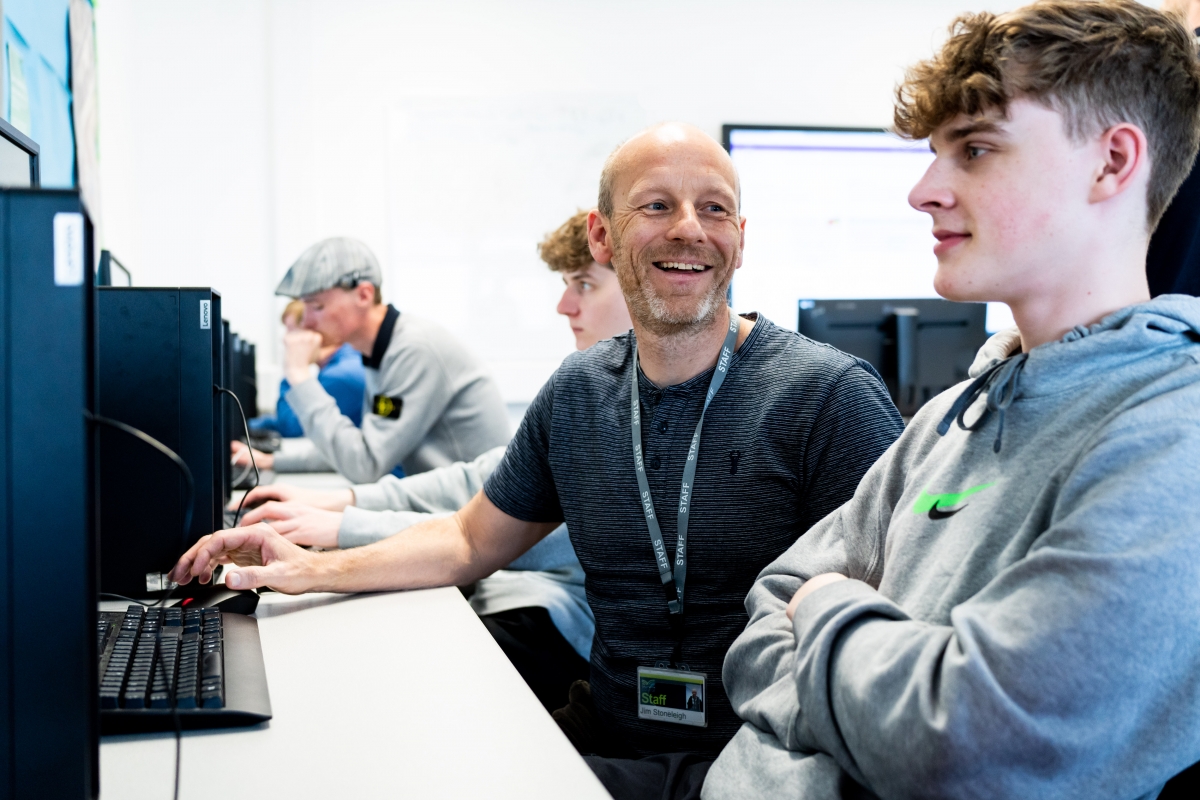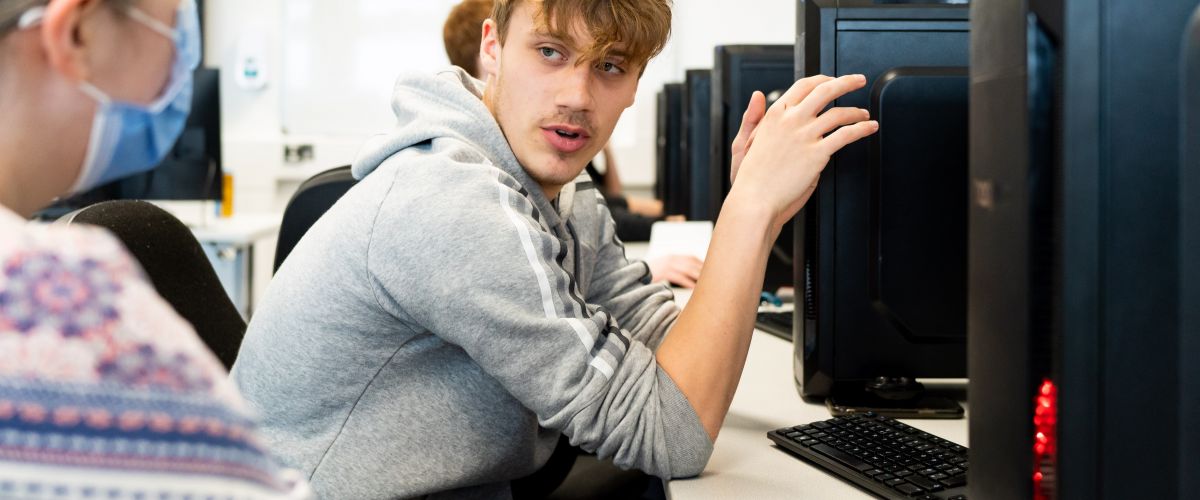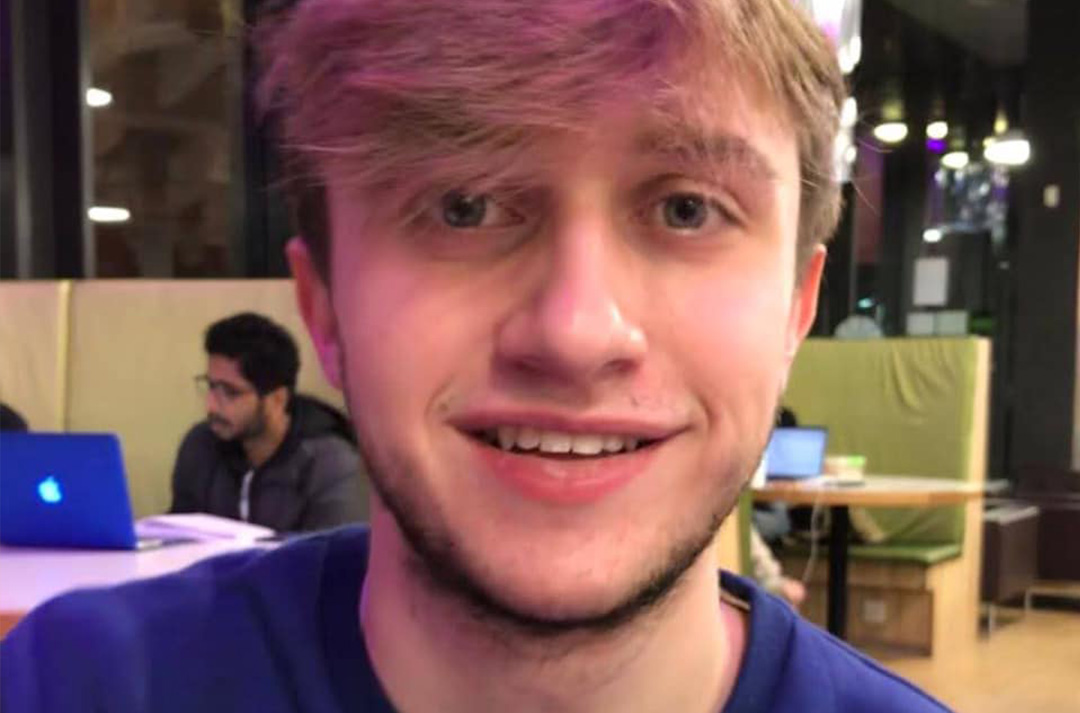A Level Computer Science
If you enjoy learning about the fundamental principles and concepts behind Computer Science and how software is engineered, then the Computer Science specification will stretch and challenge you. The course will provide you with valuable skills in a range of programming environments, how we use programming languages to solve a range of problems and how digital technology is used by others, particularly the moral, ethical, legal and cultural opportunities and risks. It will also help you to think creatively, innovatively, analytically, logically and critically as well as allowing you to apply practical mathematical skills.
Key information
Computing & IT / Full Time / A Levels and Equivalent

Why choose this course?
The basis of this course is computation, both in theory and practice. Computer Science is an academic subject that requires you to be systematic and logical, and so often lends itself to the more technically minded student. You’ll start off by developing practical skills in a range of programming languages principally Visual Basic and C#. You will have the opportunity to perform systems analysis, software engineering and program construction.
Then, you’ll move on to learn how software interacts with hardware; in particular the role of the operating system, data structures and processes and how the principles of hardware impact on software and data communication. Later, you will discover how different types of software drive the digital economy and the implications of the digital revolution on the rest of society. You will also examine issues with digital security and undertake a major piece of independent coursework on a software problem of your own choice.
As computers are now such an integral part of society, people with A Level Computer Science skills are in extremely high demand. The many career possibilities that are available to you with Computer Science include system analysis, computer programming, animation and many more. Previous students now work around the world for companies ranging from Google to local businesses working with robotics and embedded systems.
What will I learn?
Year 1 study
In Year 1 you will be introduced to the basic principles of: Hardware and communication; logical operations; data transmission; data representation and data types; data structures; organisation of data; database systems; the operating system; algorithms and programs; principles of programming; systems analysis; software engineering; program construction; the need for different types of software systems and their attributes; practical programming; data security and integrity processes; and an introduction to the Economic, moral, legal, ethical and cultural issues relating to computer science.
Year 2 study
Component 1: Computer Systems
Written exam: 2 hour 30 minutes – worth 40%
This component includes the internal workings of the Central Processing Unit (CPU), the exchange of data and will also look at software development, data types and legal and ethical issues.
Component 2: Computational thinking, algorithms and programming
Written exam: 2 hour 30 minutes – worth 40%
This component will incorporate and build on the knowledge and understanding gained in the Computer systems component. This includes benefits of applying computational thinking to solving a wide variety of problems, being able to use algorithms to describe problems and analysing a problem by identifying its component parts.
Component 3: Programmed Solution to a Problem
Coursework - worth 20%
This unit assesses your ability to use the knowledge and skills gained through the course to solve or investigate a practical problem. For this you will create a Unity game, of your choice, using the C# programming language.
Assessment Arrangements
Your achievement in this subject is dependent upon excellent attendance, punctuality and effort. You will learn in a friendly atmosphere, using a variety of assessment methods.
You will be assessed regularly on practical work that is conducted either as homework or under timed conditions in class and given feedback on your progress. You also will be assessed regularly on technology terminology.
Discussions and presentations are a vital part of our assessment process and you will be expected to contribute to those and practical exercises.
You will review your own performance in 1:1 sessions with your tutor.
You will undertake mock examinations on each component in advance of your final exams.
You will be formally examined on each component that you study. The linear examinations are traditional and written, and are sat at the end of the second year. Coursework in the second year is compulsory.
Information & Support
We encourage all students to read widely and conduct their own research into computer systems and software development, especially those who wish to study Computer Science related courses at degree level. We will offer opportunities for you to conduct independent research and development.
Programming development can take place using resources in college. The software that you will use is available as free downloads or through student licence schemes.
What will I need?
A Level Computer Science requires a systematic and logical approach to problem-solving. You will require five good GCSEs at grade 4 in line with general entry requirements for A Level, including English Language or Literature at grade 5 or above, and mathematics at least a grade 6. GCSE IT/Computer Science is not required, but a strong desire to develop skills in programming languages or previous experience is helpful.
Where will it take me?
A qualification in Computer Science is highly valued by many universities and employers alike. Computer Science is also an excellent subject to complement many courses, such as Physics, Mathematics, any technology-related course, and other sciences. Some university courses also require an A Level in Mathematics.
Many of our students go on to take a degree course in computing or computing related subjects, leading to a future in programming, networking, business and other related areas. Computer Science is useful when applying for a variety of careers from engineering to banking, or as an entry requirement to become a trainee programmer or software engineer.
Additional Information
Awarding Body:
OCR
To obtain more information about this course, please call: 01208 224000 or email enquiry@callywith.ac.uk

